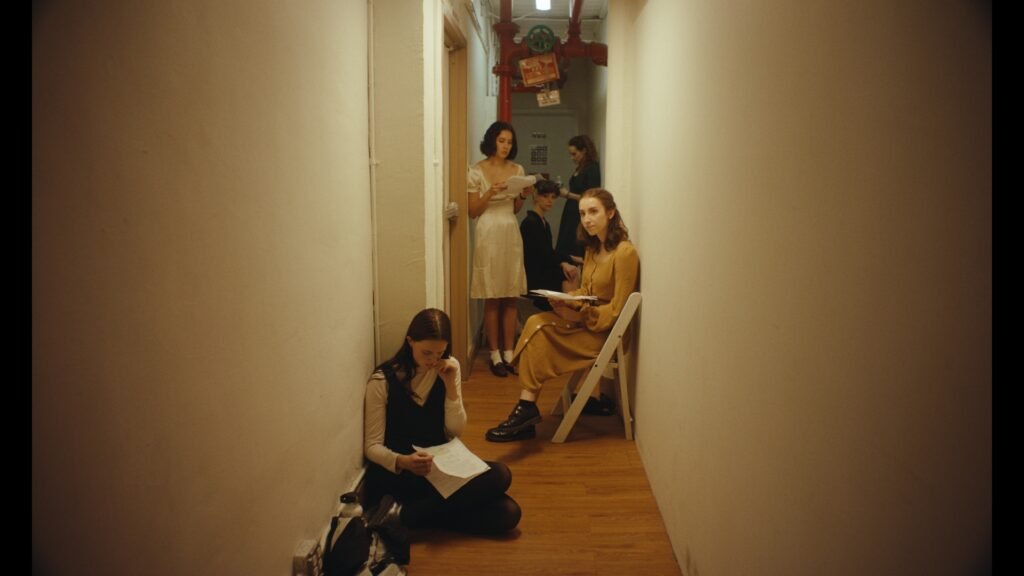Action Thriller ‘Bloodline” Seeks Worldwide Distribution at Cannes.
‘Bloodline’ launching at the Cannes Film Festival on the 15th of ...

What really makes one a good enough actor? Is it the ability to summon emotions on cue, tears rolling down exactly when asked? Or is it the depth of understanding, being able to step into a character’s skin and capture what they might feel, even if the performance isn’t marked by something as visible as tears?
‘Crying on Command’, a 13-minute short film directed by Nick Craven, takes that question and holds it up to the light, asking us to consider the cost of equating talent with control over involuntary emotions.
In the film, aspiring actress Jordyn finds herself in what could be the audition of her lifetime. She appears confident and prepared as she delivers her lines in front of the director and two others in the room. For a moment, her dream feels within reach. But then comes the real test. She’s asked to cry. This seemingly simple demand becomes an obstacle that she didn’t think was possible.
The harder she pushes, the more obvious it becomes that this is something that she would struggle with in her performance. And suddenly, the cracks of desperation start to show. Her struggle isn’t just with the inability to produce tears, but with the creeping self-doubt that perhaps she’s not as talented as she thought, or perhaps that she wants it too much to let go and be vulnerable.
Nancy Kimball steps into the role of Jordyn with a rawness that feels heartbreakingly genuine. She embodies the anxious, hopeful, and slightly naïve performer who sees the role as hers to lose as much as to take. There’s a striking innocence in her, the kind that makes her desperation believable and her eventual unravelling all the more painful to watch. When Jordyn smiles at the news that she’s “got the role,” even if fleeting, that smile radiates authenticity. It feels unforced, the kind of small victory that so many performers live for, even if only briefly.
Opposite her is Jake Fallon, who not only plays Bert, the reader guiding Jordyn through the audition, but also the writer for ‘Crying on Command’. His performance is measured, embodying the quiet authority of someone who knows the power he holds over the hopeful talent before him. We also see the hesitation when he has to ask Jordyn to cry upon the director’s request, knowing in that very moment how that could affect her chances of landing the role.
Visually, ‘Crying on Command’ makes smart use of its limited setting. The cinematography employs simple but thoughtful framing choices, particularly side profile shots that reflect Jordyn’s inner state, torn between control and collapse. The entire film takes place within the stark white walls of the audition room, with only a few brief seconds outside in the waiting area, reminding us that this is a world defined by scrutiny and judgment. That set, although bright, still captures an almost claustrophobic situation for Jordyn that increases the tension, making her eventual breakdown feel more devastating.
What lingers after the credits is not just Jordyn’s failed attempt at crying, but the larger, unspoken truth of what it means to put yourself at the mercy of other people’s standards of worth. It’s a familiar story for anyone who has ever auditioned, applied, or presented themselves for evaluation: the vulnerability of offering up your best only to be measured by criteria that often feel unexplainable.
Despite its concise 13-minute runtime, the film leaves you with the sense that there’s more to be told here. Jordyn’s story feels like the beginning of a larger exploration. What becomes of her after this audition? Does the rejection hollow out her confidence, or does it force her to confront her insecurities in a way that eventually makes her stronger? It’s a world rich enough to be expanded into a feature-length narrative, one that could delve deeper into the psychology of performers and the sacrifices they make for validation.
Still, as it stands, ‘Crying on Command’ delivers its message with clarity. It reminds us that talent is not just about proving oneself under someone else’s microscope. It’s about holding onto the belief that you are enough, even when a system designed to test your worth tries to convince you otherwise.

Leave A Reply